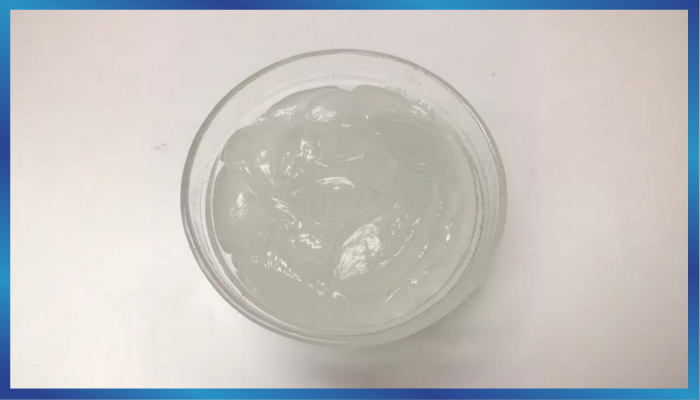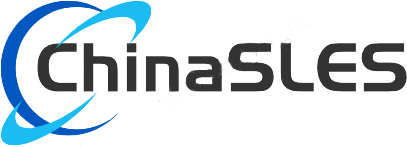The Role of Sodium Lauryl Ether Sulfate (SLES/Texapon) in Modern Industry – Ishtarcompany

Sodium Lauryl Ether Sulfate (known as SLES or Texapon) was first used as an engine degreaser during World War II. This chemical compound was so abrasive and corrosive that it could remove the toughest grease and soot. After World War II, many specialists worked on this product and were astonished by its diverse and extensive applications. As a result, Texapon plays a significant and effective role in modern industries today.
In this article, we will discuss the role, benefits, and applications of Sodium Lauryl Ether Sulfate in modern industries. At the end, we will introduce a smart method for purchasing high-quality and cost-effective SLES.
Features and Properties of Sodium Lauryl Ether Sulfate (SLES)
Before discussing the benefits and applications of SLES in modern industries, it is worth mentioning a few words about the features and properties of this substance.
SLES is one of the most common anionic surfactants and is considered a highly powerful synthetic cleanser. Additionally, Texapon is an emulsifier, foaming agent, solubilizing agent, and foam booster. Due to these characteristics, Sodium Lauryl Ether Sulfate is used in the production of detergents and shampoos.
The molecular weight of Texapon is 288.38 grams per mole, and its density is 1.05 grams per cubic centimeter. The melting point of this substance is reported to be 206 degrees Celsius. Sodium Lauryl Ether Sulfate is a viscous, free-flowing liquid that ranges in color from colorless to pale yellow.
Sodium Lauryl Ether Sulfate is a surfactant belonging to the alkyl ether sulfate group. Alkyl ether sulfates are among the most important anionic surfactants. These compounds have a polar head composed of two or three oxyethylene units and a sulfate group. On the other hand, their hydrophobic part is typically a carbon chain derived from a fatty alcohol.
Texapon is available in the market in two forms: N70 and Pearl Texapon. Texapon N70 is a paste-like substance that, due to its high viscosity, is used in the production of clear liquid detergents and is derived from natural fatty alcohols. Pearl Texapon has less purity compared to N70 and is used in the production of pearlescent and opaque cleansing products such as shampoos. Recently, a powdered form has also been developed and produced.
Benefits and Advantages of Using Texapon in Various Industries
In this section, we will outline some of the key benefits and advantages of using SLES in various industries. These benefits explain why Sodium Lauryl Ether Sulfate is so popular and effective:
- Excellent solubility in water and fat: SLES has both hydrophilic (water-loving) and lipophilic (fat-loving) properties. Its hydrophilic part allows it to dissolve completely and easily in water, making it an effective cleaning agent. SLES can surround and emulsify fat and oil molecules, which are typically insoluble in water, allowing them to be easily washed away. Additionally, it can partially dissolve in nonpolar organic solvents like oils and fats, enabling it to penetrate and remove grease and oil from surfaces.
- Good resistance to hard water: Hard water contains high concentrations of calcium (Ca2+) and magnesium (Mg2+) ions, which can react with SLES molecules to form precipitates, negatively affecting its cleaning and foaming performance. However, SLES has relatively good resistance to hard water, maintaining its effectiveness even in such conditions.
- Compatibility with nonionic, amphoteric, and other anionic surfactants: Sodium Lauryl Ether Sulfate is an anionic surfactant that generally shows good compatibility with other types of surfactants, including nonionic, amphoteric, and other anionic surfactants. This makes it versatile and suitable for various formulations.
- Excellent cleaning power: Texapon effectively removes grease, oil, and dirt from surfaces, making it an ideal choice for use in detergents, cosmetics, and personal care products.
- Rich and stable foam production: One of the key features and benefits of SLES is its excellent foaming ability. It can create rich and stable foam, which is why it is one of the most commonly used surfactants in the world.
- Cost-effective: The raw materials used to produce SLES are relatively affordable, making this surfactant a cost-effective option for manufacturers.
These advantages make Texapon an invaluable ingredient in a wide range of products, including cleaning agents, cosmetics, and personal care items, contributing to its widespread use and popularity.
Applications of Sodium Lauryl Ether Sulfate (SLES) in Modern Industries
Due to its unique properties and characteristics, Sodium Lauryl Ether Sulfate is used in various modern industries. Below are some of the most important industries that utilize SLES:
1. Detergent Industry
SLES is a prominent ingredient in the detergent industry, employed in manufacturing shampoos, soaps, dishwashing liquids, and laundry detergents. Its exceptional cleaning power and excellent foaming capabilities make it a top choice for this sector.
2. Cosmetics and Personal Care
In the cosmetics and personal care industry, Texapon serves as a lathering agent, emulsifier, and moisturizer. It finds applications in various products like creams, lotions, mascara, eyeshadow, and toothpaste.
3. Textile Industry
SLES plays a crucial role in the textile industry, effectively cleaning fibers and fabrics. It efficiently removes grease, oil, and dirt from textiles. Additionally, SLES is used in fabric dyeing, acting as a wetting agent to enhance the absorption of dyes and printing chemicals onto fibers.
4. Oil and Gas Industry
SLES serves as an emulsifier in the emulsion-based oil extraction process. It facilitates the mixing of water and oil, forming a stable emulsion that streamlines oil extraction. Moreover, Texapon is employed as a wetting agent in steam-assisted oil extraction, reducing the interfacial tension between water and oil, and enabling better steam flow within the oil reservoir. Furthermore, it is added to oil pipelines to reduce friction and improve oil flow, leading to reduced oil transportation costs and enhanced efficiency.
5. Pharmaceutical Industry
In the pharmaceutical industry, SLES promotes drug absorption through the skin. It also acts as a solvent in certain topical and oral medications, aiding in the dissolution of other drug components and forming a stable solution.
6. Food Industry
SLES functions as an emulsifier in food products like sauces, ice cream, and emulsified beverages. It facilitates the mixing and stabilization of various ingredients with different properties, such as water and oil, preventing their separation. Additionally, it plays a role in viscosity control for various food products like soups.
Specialized Supplier of High-Quality and Cost-Effective SLES Across the Middle East: Ishtar Company
In this article, we delved into the characteristics and properties of Sodium Lauryl Ether Sulfate (SLES). We then explored the advantages and applications of SLES in modern industries. We hope that the insights provided have adequately enhanced your understanding of this substance and its benefits.
When purchasing high-quality Texapon, it’s crucial to partner with specialized and experienced producers and distributors. The more reputable and established a supplier is, the more assured you can be of receiving an efficient and high-quality product.
Ishtar Company, a subsidiary of the Baros Holding Group, is a leading and well-respected Texapon supplier across the Middle East. We collaborate with the world’s top SLES manufacturers to consistently provide our customers with the highest quality and most cost-effective products from the best producers.
To inquire about Sodium Lauryl Ether Sulfate (SLES) pricing or place an order, contact us at (+971) 524403255. To access comprehensive product information, you can also visit our Sodium Lauryl Ether Sulfate (SLES or Texapon) page.
